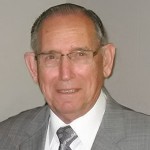 Randy McCarthy
Randy McCarthy
Podcast: Download (Duration: 40:59 — 12.3MB)
 Randy McCarthy
Randy McCarthy
Podcast: Download (Duration: 40:59 — 12.3MB)
 Mark Wattenbarger speaks on the interactions of Peter with Jesus in his final days before his crucifixion focusing on Peter’s denial of Christ.
Mark Wattenbarger speaks on the interactions of Peter with Jesus in his final days before his crucifixion focusing on Peter’s denial of Christ.
Podcast: Download (Duration: 41:44 — 12.4MB)
 Allen Daniels
Allen Daniels
Scriptural Reference: John 18:28-40
Podcast: Download (Duration: 47:09 — 13.9MB)
 Randy McCarthy continued his discussion from last week on Faith
Randy McCarthy continued his discussion from last week on Faith
Podcast: Download (Duration: 52:38 — 16.2MB)
 Allen Daniels spoke on “The Spirit of God” (referencing Elder Kirkpatrick’s sermon from last week.)
Allen Daniels spoke on “The Spirit of God” (referencing Elder Kirkpatrick’s sermon from last week.)
 Randy McCarthy spoke on “Faith”.
Randy McCarthy spoke on “Faith”.
Podcast: Download (Duration: 54:52 — 16.2MB)
 Randy McCarthy opened services reading from the 3rd chapter of James
Randy McCarthy opened services reading from the 3rd chapter of James
 Ed Kirkpatrick spoke on The Spirit of God.
Ed Kirkpatrick spoke on The Spirit of God.
Podcast: Download (Duration: 58:55 — 16.8MB)
 Randy McCarthy opened services reading from Matthew chapter 7 (Matt 7:24-29)
Randy McCarthy opened services reading from Matthew chapter 7 (Matt 7:24-29)
 Allen Daniels spoke about witnessing. (Hebrews chapter 12)
Allen Daniels spoke about witnessing. (Hebrews chapter 12)
Podcast: Download (Duration: 56:33 — 16.7MB)
Randy McCarthy opened services reading from 2nd Timothy chapter 3 (2Tim 3:14-17)in reference to the nature of the word of God.
Mark Wagner introduced services.
 Mark Wattenbarger spoke on Love, Fear, Betrayal
Mark Wattenbarger spoke on Love, Fear, Betrayal
Podcast: Download (Duration: 44:27 — 13.3MB)
© 2026 Bethlehem Primitive Baptist Church of Oklahoma City